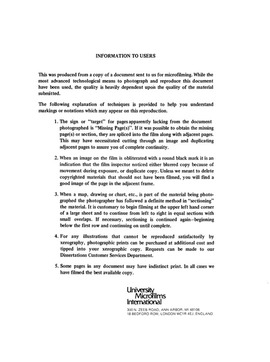| dc.contributor.author | Long, Larry W. | en_US |
| dc.date.accessioned | 2013-08-16T12:28:05Z | |
| dc.date.available | 2013-08-16T12:28:05Z | |
| dc.date.issued | 1979 | en_US |
| dc.identifier.uri | https://hdl.handle.net/11244/4740 | |
| dc.description.abstract | This investigation explored ways in which communication roles and actor properties are related to job satisfaction and management preferences of organizational members. Expectations relating communication role and actor variables with job satisfaction and management preference were generated from a functional model of communication roles. It was determined that communication role enactment and actor properties are highly significant predictors of expressed levels of job satisfaction and preferences of Theory X and interpersonal relations-oriented management philosophies. Specifically, the data analyses showed that source-receiver and task-socio-emotional distinctions in role enactment and actor properties were most effective for predicting the criterion variables selected for the study. | en_US |
| dc.description.abstract | The research design permitted the development of reliability indices for factor structures and predictive validity for the Communication Role Assessment Measure (Cummings, Long, and Lewis, 1979). This favorable assessment lends credence to the rationale and justification for functional communication role research. | en_US |
| dc.format.extent | ix, 184 leaves ; | en_US |
| dc.subject | Speech Communication. | en_US |
| dc.title | An exploratory study of communication roles as predictors of job satisfaction and management preference. | en_US |
| dc.type | Thesis | en_US |
| dc.thesis.degree | Ph.D. | en_US |
| dc.thesis.degreeDiscipline | Department of Communication | en_US |
| dc.note | Source: Dissertation Abstracts International, Volume: 41-03, Section: A, page: 0848. | en_US |
| ou.identifier | (UMI)AAI8019129 | en_US |
| ou.group | College of Arts and Sciences::Department of Communication | |
